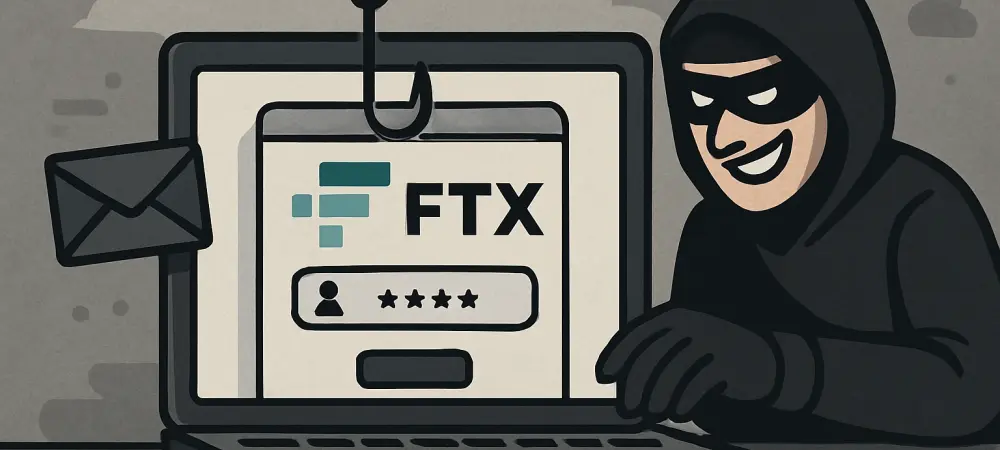Today, we’re thrilled to sit down with Nicholas Braiden, a true pioneer in the blockchain and fintech space. As an early adopter of blockchain technology, Nicholas has become a leading voice in advocating for the transformative power of financial technology. With years of experience advising startups on harnessing tech for innovation, he’s here to shed light on the latest developments surrounding the FTX creditor situation, including a troubling scam targeting vulnerable users, the role of legitimate partners in the payout process, and critical advice for staying safe in the crypto world.
How did you first become aware of the phishing scam targeting FTX creditors, and what stood out to you about its approach?
I’ve been following the FTX reorganization closely, and when reports surfaced about scam emails impersonating Kroll Restructuring Administration LLC, it immediately raised red flags. What struck me was the sophistication of the scam. The emails were crafted to look incredibly legitimate, even quoting specific claim amounts to trick creditors into believing they were official. It’s a classic phishing tactic, but the level of detail made it particularly dangerous for anyone not paying close attention.
Can you dive into the specifics of what these scam emails claimed and why their instructions were so risky?
Absolutely. The emails falsely claimed that Kroll, the firm overseeing FTX’s reorganization, had partnered with a fictitious entity called Digital Disbursements to handle payouts. They urged recipients to follow instructions in a follow-up email to set up accounts, often directing them to click on embedded links. This is incredibly risky because those links can lead to fake websites designed to steal personal information or even install malware. Once you’re on those sites, your credentials and funds are at the mercy of the scammers.
What’s the best way for FTX creditors to protect themselves from falling victim to these kinds of phishing attempts?
The key is vigilance and sticking to secure practices. Never click on links in unsolicited emails, even if they look official. Instead, go directly to the FTX Claim portal or related platforms by typing the URL into a new browser window. This minimizes the chance of landing on a fake site. Also, double-check email sender addresses for subtle misspellings or odd domains. Scammers often rely on people overlooking those small discrepancies.
Let’s talk about Kroll Restructuring Administration LLC. Can you explain their role in the FTX reorganization and why scammers might target their name?
Kroll is the official liquidator managing FTX’s Chapter 11 reorganization, which includes overseeing the distribution of payouts to creditors. Their role is central to the process, making them a prime target for impersonation. Scammers know that creditors are eagerly awaiting updates on their claims, so using Kroll’s name adds an air of authority to the scam. It’s a psychological tactic—people are more likely to trust something associated with a recognized entity in this high-stakes situation.
The scam mentioned a fake partnership with Digital Disbursements. How did the scammers use this to deceive creditors, and is there any truth to it?
The scammers fabricated a story that Kroll had partnered with Digital Disbursements for payout distribution, creating a sense of urgency for creditors to act quickly to secure their funds. It’s a clever ruse because it mimics the kind of partnerships we often see in financial restructurings. However, there’s no truth to it. Neither FTX nor Kroll has announced any collaboration with Digital Disbursements, which is a clear sign this was a fraudulent attempt to mislead people.
On the topic of legitimate partners, can you clarify who is actually involved in the FTX payout distribution process?
Sure. The official distribution partners for FTX payouts are BitGo and Kraken, which were announced early on as key platforms for facilitating creditor repayments. More recently, in June, Payoneer was added as a third partner to support creditors across 93 jurisdictions. These are the only confirmed entities working with the FTX estate on distributions, and any communication about payouts should align with updates from these platforms or directly from Kroll.
How widespread do you think these phishing attempts are, and what challenges do creditors face in identifying them?
Unfortunately, these scams seem to have been circulating for some time, based on reports from various creditors and activists in the community. The biggest challenge is the subtlety of the deception. These emails often look polished, with branding and language that mimics official correspondence. For someone unfamiliar with phishing red flags—or just desperate for news on their funds—it’s easy to miss the warning signs like odd email addresses or unsolicited links. Awareness and education are critical here.
What broader impact do you think scams like this have on trust in the crypto and blockchain space?
Scams like this erode trust, which is already a fragile commodity in the crypto world after high-profile collapses like FTX. They prey on people who’ve already suffered losses, making them wary of legitimate processes and platforms. It’s a setback for the industry’s credibility, but it also underscores the need for better user education and stronger security protocols. We can’t let bad actors define the narrative when blockchain has so much potential to revolutionize finance.
Looking ahead, what is your forecast for the security landscape surrounding crypto restructurings like FTX?
I think we’re going to see an increase in both the sophistication of scams and the countermeasures taken to combat them. As crypto restructurings become more common, scammers will continue to exploit the uncertainty and complexity of these processes. On the flip side, I expect firms like Kroll and exchanges to ramp up user education campaigns and implement stricter verification processes. My hope is that the industry will also push for standardized communication channels to make it harder for fraudsters to impersonate legitimate entities. It’s a cat-and-mouse game, but with the right focus, we can stay ahead.

